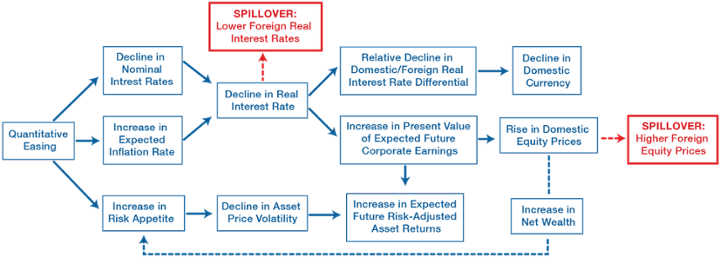Welcome to the weekend: Pour yourself a mug of cold brewed iced coffee, and settle in for our longer form weekend reading:
• This Medical Charity Made $3.3 Billion From a Single Pill: How the Cystic Fibrosis Foundation amassed a fortune—and upended medical research at the same time (Bloomberg)
• Paul McCartney Opens Up About Lennon, Yoko, and More: Our greatest living rock star on why Lennon’s a martyr, who gets the credit, and touring in his seventies (Esquire)
• The Death of Golf: It’s expensive, difficult, and demands the kind of time most people get only when they go on vacation — or retire. (Men’s Journal)
• How You Consist of Trillions of Tiny Machines (NY Review of Books)
• The Hunt for the Financial Industry’s Most-Wanted Hacker: The malware known as ZeuS and its rogue creator have been at the cutting edge of cyber-crime for nearly a decade (Bloomberg)
• Whistle-blower: How doctor uncovered nightmare. Oncologist’s discovery leads to the downfall of a cancer treatment empire. (Detroit News)
• Organic Farmers Call Foul On Whole Foods’ Produce Rating System (NPR) see also Is organic food any healthier? Most scientists are still skeptical. (Vox)
• Well-Aimed and Powerful: The death of the shuttle, the moon hoax conspiracy theory, and why one man deserved to be punched in the damn mouth by Buzz Aldrin. (Long Reads)
• When the End of Human Civilization Is Your Day Job: Among many climate scientists, gloom has set in. Things are worse than we think, but they can’t really talk about it. (Esquire)
• Everything you think you know about disciplining kids is wrong: Negative consequences, timeouts, and punishment just make bad behavior worse. But a new approach really works. (Mother Jones)
Be sure to check out our Masters in Business interview this weekend with David Kotok of Cumberland Advisors.
Transmission of QE Policies to Interest Rates, Exchange Rates and Equities

Source: Bloomberg Brief


The Hardest Thing To Do In Investing
The best buying opportunities are usually the ones that feel the worst.
Let’s face it, when the market is down 3, 5, or even 10%, it’s usually because something bad is happening in the world. A country with a stock market you barely knew existed is going bankrupt, a server glitch in some backroom closet is rearing its ugly head, or an unexpected black swan event has sent shockwaves of panic across the globe. ….
Instead of taking a sledge hammer to your portfolio, I prefer to make subtle changes to reduce the overall risk profile or deploy cash in areas of the market that look attractive during a pullback ….
Useful advice
http://gizmodo.com/what-is-the-best-thing-to-do-when-a-grenade-is-thrown-a-1689925875
Net worth tax proposed on billionaires….
http://tywkiwdbi.blogspot.ca/2015/07/net-worth-tax-on-billionaires-proposed.html#comment-form
War of the squirrels on stock exchanges?
http://www.theatlantic.com/business/archive/2015/07/squirrels-trading-new-york-stock-exchange/398108/
Apropos of nothing, in WWII the best way to identify German spies was to have them try to pronounce squirrel..
http://mentalfloss.com/article/56880/watch-germans-try-say-word-squirrel
re: German spies: work with Russian spies, too: “Moose and squeerel”
(sigh) … another day, yet another exercise in framing / bashing organic agriculture.
Who knows if organic is “better” for YOU (I guess the counter-argument would be equivalent to ‘hey, ingesting known toxins isn’t necessarily bad’ … ?).
It is virtually undisputed, however, that organic agricultural production is less harmful to the BIOSPHERE.
You know, that little sliver of habitable rock that – twitter and iPads notwithstanding – we evolved for and continue to thrive on for the moment?
Not to mention the miraculous assembly of living beings – virtually ignored by most humans – that accompany us here for now?
” At the moment, economic comparative studies only put economic inputs and outputs into the equation, and broadly overlook the environmental, social and health costs. Accounting for externalities, such as costs associated with run-off, spills, depletion of natural resources, health costs of farming exposed to pesticides, etc. are lacking. Yet organic is most often delivering public goods such as environmental and health benefits (see boxes on environmental and health impacts of organic agriculture below). Taking the differences in external costs and benefits into account would give us the true profitability picture of the different systems.”
From: FAO Meta Study, Noémi Nemes “COMPARATIVE ANALYSIS OF ORGANIC AND NON-ORGANIC FARMING SYSTEMS: A CRITICAL ASSESSMENT OF FARM PROFITABILITY” (2009)
http://www.fao.org/3/a-ak355e.pdf
The NYRB book review by Tim Flannery is wonderful.
If of interest, a remarkable animation by Drew Berry, of Walter & Eliza Hall Institute, Melbourne:
https://www.youtube.com/watch?v=7wpTJVWra7I
& his TED presentation: https://www.ted.com/talks/drew_berry_animations_of_unseeable_biology